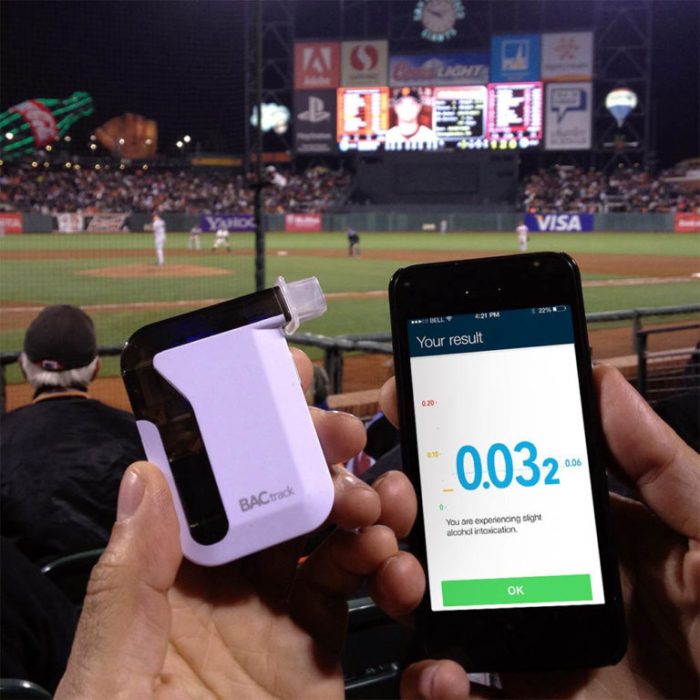Breathalyzer for smartphone technology is revolutionizing the way we detect alcohol consumption, offering a convenient and discreet alternative to traditional breathalyzers. This innovative technology leverages the power of smartphones to provide rapid and accurate alcohol readings, transforming the landscape of personal safety, law enforcement, and healthcare.
Imagine a world where you can quickly check your blood alcohol content (BAC) with the simple tap of an app on your phone. This is the promise of smartphone breathalyzers, which are becoming increasingly popular as a convenient and accessible tool for alcohol monitoring. These devices utilize advanced sensors integrated into smartphone cases or external attachments to analyze breath samples and provide real-time BAC readings.
Regulatory Landscape
The regulatory landscape for smartphone breathalyzers is a complex and evolving area, influenced by factors such as public safety concerns, technological advancements, and legal frameworks. Understanding the legal and regulatory requirements is crucial for manufacturers, developers, and users of these devices.
Standards and Certifications
The accuracy and reliability of smartphone breathalyzers are paramount, as they can have significant implications for public safety and legal consequences. To ensure the quality and performance of these devices, various standards and certifications have been established. These standards typically cover aspects such as:
- Accuracy and Precision: Standards define acceptable tolerances for breathalyzer readings, ensuring that the device provides reliable and consistent results.
- Calibration and Maintenance: Standards Artikel procedures for calibrating and maintaining the device to ensure ongoing accuracy.
- User Interface and Instructions: Standards specify clear and concise instructions for users to operate the device properly.
- Data Security and Privacy: Standards address the secure storage and transmission of user data, protecting privacy and confidentiality.
Some common standards and certifications for smartphone breathalyzers include:
- National Highway Traffic Safety Administration (NHTSA): The NHTSA sets standards for breathalyzers used in law enforcement, which may serve as a reference for smartphone breathalyzers.
- European Union (EU): The EU has established regulations for medical devices, which may apply to some smartphone breathalyzers.
- International Organization for Standardization (ISO): ISO develops international standards for various industries, including medical devices, which may cover aspects relevant to smartphone breathalyzers.
Regulatory Challenges and Future Developments, Breathalyzer for smartphone
The regulatory landscape for smartphone breathalyzers presents challenges, particularly regarding:
- Harmonization of Standards: Different jurisdictions may have varying regulations, creating complexities for manufacturers seeking global market access.
- Data Privacy and Security: The collection and storage of user data raise concerns about privacy and security, requiring robust measures to protect sensitive information.
- Accuracy and Reliability: Ensuring the accuracy and reliability of smartphone breathalyzers is critical, particularly in legal contexts, and requires ongoing research and development.
- Consumer Education and Awareness: Educating consumers about the proper use and limitations of smartphone breathalyzers is essential to prevent misuse and ensure responsible use.
Future developments in the regulatory landscape for smartphone breathalyzers may include:
- Development of Standardized Testing Protocols: Establishing standardized testing protocols for smartphone breathalyzers can enhance consistency and comparability across different devices.
- Collaboration between Regulators and Industry: Collaboration between regulatory bodies and industry stakeholders can facilitate the development of effective regulations and standards.
- Advancements in Technology: Advancements in sensor technology, artificial intelligence, and data analytics can improve the accuracy and reliability of smartphone breathalyzers.
- Increased Consumer Awareness: Increased consumer awareness about the benefits and limitations of smartphone breathalyzers can foster responsible use and promote public safety.
Last Recap: Breathalyzer For Smartphone
Smartphone breathalyzers are poised to transform how we approach alcohol consumption, offering a new level of convenience, accuracy, and potential for positive social impact. As technology continues to evolve, we can expect even more innovative applications of this technology, further enhancing safety, promoting responsible drinking, and empowering individuals to make informed decisions about their alcohol consumption.
Imagine a future where your smartphone can not only track your fitness but also ensure your safety on the road. A breathalyzer integrated into your phone could be a game-changer, but it would require a substantial amount of data to process the results accurately.
This is where a robust smartphone data plan comes in, providing the necessary bandwidth for the app to function efficiently. With a reliable data plan, your phone could become a powerful tool for responsible driving and promoting safer roads.
 Informatif Berita Informatif Terbaru
Informatif Berita Informatif Terbaru
